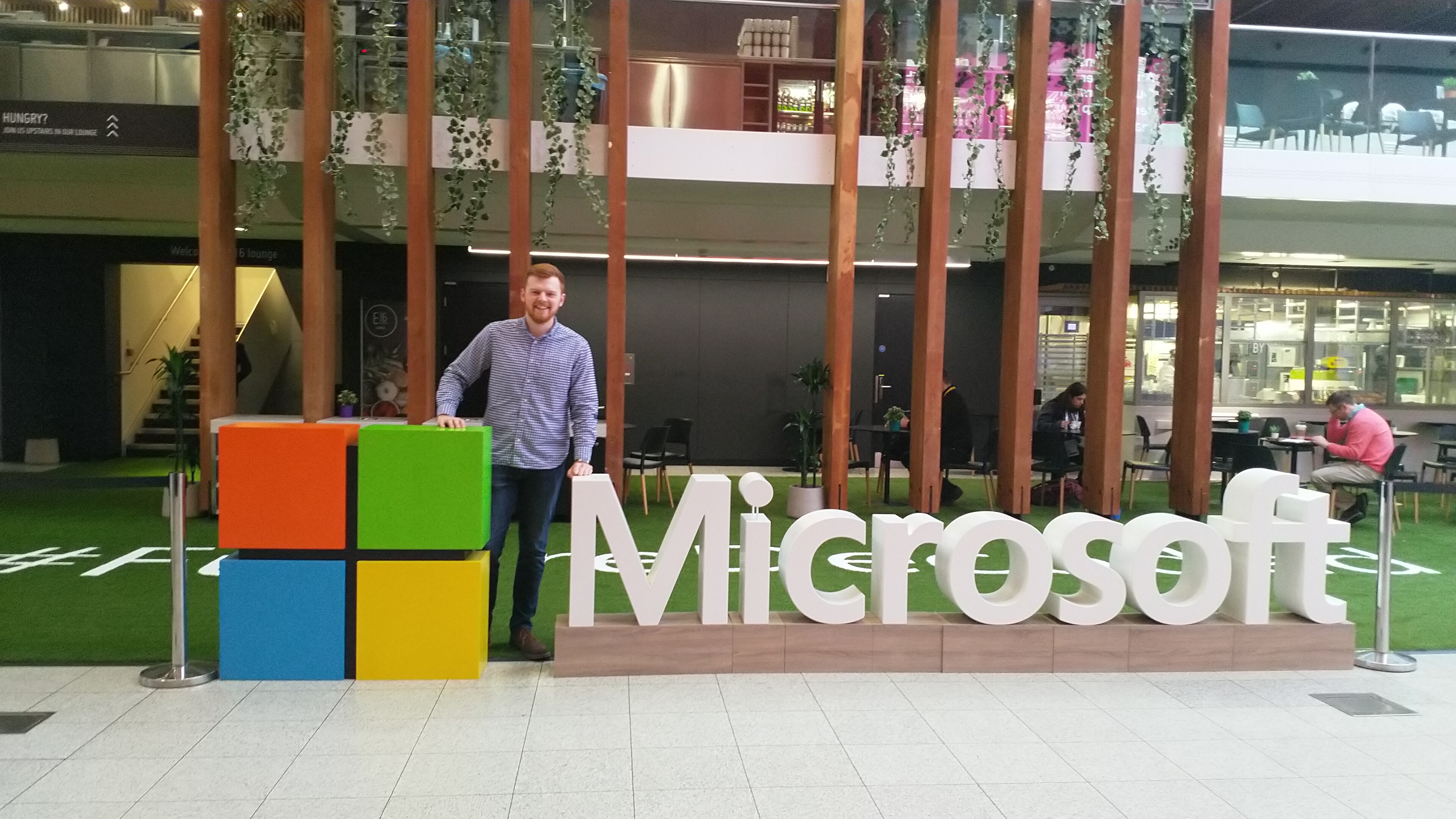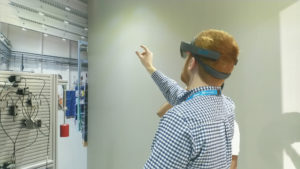Microsoft Future Decoded 2018

C5 Alliance Consultant Matthew Champion recently attended Microsoft’s Future Decoded conference at the ExCeL in London. The two-day event looked at where technology is heading and how in some cases the future is already here.
The conference was structured around a framework of five digital transformation pillars including “Empower Employees”, “Grow Culture” and “Transform Products” with the overarching theme of artificial intelligence (AI), ethics and accessibility.
Accessibility
An awareness of disabilities, both hidden and visible, has been an ongoing topic of conversation during 2018 and, importantly, companies are beginning to consider disability more seriously. The Microsoft conference became a live case study as delegates with hearing difficulties were able to engage through live captioning, a feature that was included in every presentation and keynote speech. This wasn’t accessed via a separate device, nor was it an app which the user had to download and configure; it was an inherent part of the delivery. Even those who didn’t suffer from hearing problems found merit in the captioning which enabled them to catch sections that might have otherwise been missed. At a technical event this can only be seen as a positive for everyone, as missing just a few words can result in losing track of the remainder of the presentation.
AI
Microsoft is not a company most immediately associated with AI, so Matthew was curious to see the work they were doing in the area. The answer largely relates to Azure, a cloud computing service created by Microsoft for building, testing, deploying, and managing applications and services through a global network of Microsoft-managed data centers. Azure powers services such as Azure Search and Azure Cognitive Services along with providing the architecture with which individuals can build AI solutions, such as Azure Machine Learning Service.
The overarching message on AI from Microsoft and the other speakers at Future Decoded was “start using AI now or you’ll be left behind”. This sort of sentiment isn’t new but when it comes from an organisation of the scale of Microsoft there’s certainly weight behind it.
Matthew noted how maturely the topic of AI was approached during the conference. The expectation might have been that the talks and keynotes would claim AI as the be-all and end-all solution; rather the talks were balanced, discussing not only the potential benefits but also pointing out the drawbacks.
There are many reasons why AI needs to be approached sensibly, but two in particular stand out. First of all there are a number of examples of AI acting in a biased way, one of the most recent being where an Amazon AI used historical hiring data and discriminated against women.
All technology that has the potential to influence good – and equally harm- should be handled responsibly and reviewed often. A further reason is one of public perception. People are starting to see AI discussed more frequently and are also beginning to experience it themselves in their day to day lives.
This is a crucial point. If the perception of AI changes, from it being a useful piece of technology to being thought of as something insidious or immoral, the chance of wider adoption is slim and would mean losing the potential advantages that AI could deliver in the future.
Matthew’s take-away from the conference was “don’t make something AI unless it’s totally necessary and proceed with both caution and ethics”.
Read Matthew’s full version of the blog on his website here.
